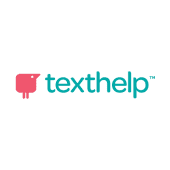
What the Zoom boom has done for edtech innovation and awareness
The first lockdown had a profound impact on education as students were told to study at home - a location that doubled as the new office of their parents, ultimately creating a co-working cocktail with a sharp aftertaste. Children were unable to learn in classrooms or see friends while parents were acting as teachers during working hours.
But who could have imagined that following the declaration of a pandemic, schools closing and working from home that we’d be in precisely the same place almost 12 months later? The silver lining is that it’s given us a year of lessons (albeit harsh ones) on how to navigate this new norm, whether that’s adapting as an organisation or individual.
Looking at those lessons, research of 11,000 UK students from the first lockdown showed that just 34% of students were actively motivated working from home, while teacher burnout is directly linked to disengaged pupils. In 2021, students and teachers have already spent more time out of schools than in them and it’s my strong belief that we’ve reached a point of no return in education.
Digital transformation of learning is here to stay - and I’m not alone in thinking so. Teacher Tapp data has shown that 65% of teachers feel more confident with edtech than before the pandemic, and 75% believe remote or blended learning will be an ongoing classroom fixture. It paves the way for schools and the government to be far more receptive to new technologies from startups than ever before.
For years, edtech startups have crafted interesting innovations and the mass implementation of home-schooling will allow them to come into their own. Education technology businesses have never had more potential than now to show the value of their creations in supporting the remote learning experience.
The challenge they face is getting that proof-point to showcase how edtech can present a positive, ongoing learning impact. They must create the confidence for educational institutions to take software on board long-term.
For example, learning analytics is an area of focus that was already one to watch, but its use case has been amplified as school closures have really shone a light on the issue of learning loss, where less study leads to depleted progress. Through learning analytics, educators have the power to use data taken from online learning to measure how off track of studies children are and how to get them back to where they should be.
Companies can further provide support to schools through addressing the motivational issue of learning from afar. This can be done with gamified experiences that add an element of fun to tasks, incentivising pupils with achievement badges and points. It removes the feeling that working independently is a chore. There’s no denying that the in-person experience in a classroom is richer. But you can still have an enthusiastic, inspirational teacher at school that’s leveraging digital tools and the benefit is simple: empowerment.
This blended learning approach presents a better use of teacher time - they can do what they do best, teach, without the additional admin of then having to transcribe every handwritten piece of work onto a digital student information system.
Pen and paper won’t go extinct overnight, but maths is also where real strides will be made this year. Typically, the numerical subject has been taught as a paper-based lesson revolving around worksheets, but that’s not physically possible now so maths needs to be done digitally and that’s a big step forward for progress.
As much as schools and startups need to break bread, the government has a significant role in doing the baking to bring them together. A now-closed government-funded body called the British Educational and Communications Technology Agency (BECTA) previously conducted research and recommendations around best educational practices involving technology. But ten years ago when the Conservative government secured power, they needed to make a series of closures in order to save funds - unfortunately BECTA was one of the departments that got shuttered.
Now is the time BECTA would have come into its own and supported the distanced learning roadmap, so schools are at something of a disadvantage presently, because it means policy around educational technology is fragmented. With all that’s going on at present, the government needs to champion edtech beyond the pandemic and give schools belief and understanding of these tools as part of an upskilling process.
Digital transformation can be thought of as installing a ramp into a hotel. The ramp is designed specifically for people with wheelchairs, but ends up getting used by the delivery person, parents with prams, then guests with suitcases. Suddenly this solution isn’t just for one group or use case, a problem has been solved for multiple people - the Zoom boom has accelerated this realisation. At the overlap of innovation and accessibility is where the magic of digital transformation happens and edtech startups have a book full of spells just waiting to be studied.


